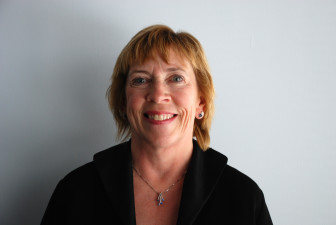People with severe mental illness die 25 years earlier than the general population and 68 percent of the mentally ill have at least one chronic physical health condition, studies show.
They don’t receive the care they need because mentally ill people are often discriminated against by medical practitioners and their mental illness can make it difficult for them to be proactive about their care, according to several mental health professionals.
Daniela Giordano, public policy director of National Alliance for Mental Illness of Connecticut, said the problem is often a lack of understanding of mental illness by some health care providers. Giordano said she knows of people with mental illness whose “thoughts and comments were dismissed” by medical providers who view these patients through “a different lens.”
A state project is addressing such barriers to necessary medical care faced by low-income mentally ill people. Under the program, called Behavioral Health Homes (BHH) and based in mental health facilities where people are already receiving outpatient services, staff members coordinate participants’ mental health and primary care. In these settings, the goal is to improve clients’ health and quality of life, extend their lives, reduce hospital visits, and lower health costs.

CHR Photo.
Heather Gates, CEO of Community Health Resources.
“It’s hard for me to describe how hard it is for our clients, by virtue of their mental illness, to access medical services that the rest of us take for granted,” said Heather Gates, president and CEO of Community Health Resources, a mental health nonprofit that serves clients in central and eastern Connecticut.
Matthew Snow, chief executive officer of the Western Connecticut Mental Health Network, said, “It’s not uncommon for medical staff to attribute physical symptoms to a behavioral health issue as opposed to a legitimate health issue.”
Some 4,200 people are participating in the program, which officially began on Oct. 1 in sites run by 15 mental health agencies statewide, according to Cheryl Stockford, behavioral health clinical manager in the state Department of Mental Health and Addiction Services. The state hopes to serve 10,000 people by next October, she said.
Officials report that clients in the Behavioral Health Homes program are going to more medical appointments and engaging in preventive care activities such as dieting and exercising.
Some are finding that clients’ health problems can differ by geography. For example, at the Danbury office of the Western Connecticut network, a recent study showed a prevalence of asthma. As a result, asthma education programs are being planned there, but not at the network’s Waterbury and Torrington sites, where asthma isn’t as common, Snow said.
Megan Goodfield, associate director of River Valley Services in Middletown, said that previously people receiving mental health care “hadn’t been asked about their ongoing health needs.” She said a nurse started walking with one client who wanted to lose weight. Four others saw them and asked to join. Now they have an exercise and social group led by the original walker.
The Southwest Connecticut Mental Health System is conducting diabetes education at its sites in Bridgeport and Stamford, where a lot of clients have mental illness and diabetes, said Cindy Perjon, the system’s associate director. “The integration of psychiatric and medical [care] is a very important part of the whole recovery model when you treat the person as a whole,” she said.
In spite of the name Behavioral Health Homes, the program is not residential, nor does care usually take place in one location. The key is that staff take an active role in coordinating a person’s health management by advocating with medical professionals, making appointments, arranging transportation, or just being in the room when a client calls a doctor’s office.
“We always want people to do what they can for themselves,” Stockford said. But if someone requests assistance, she added, “the BHH team will help to make sure that service is provided.”
Perjon of the Southwest network said a nurse drove a client “who had been struggling to get to medical appointments” from Fairfield County to a physician in New Haven.

WCMHN Photo.
Matthew Snow, CEO of the Western Connecticut Mental Health Network.
The federal Affordable Care Act encourages such programs as a way to improve health care, increase access to it, and reduce costs. The state is applying for the Connecticut project to be classified as a Medicaid Home program. This would provide 90 percent reimbursement of its Medicaid expenses for the first two years, compared to the usual 50 percent. The General Assembly appropriated $10 million with the expectation of being paid back by the federal reimbursement, said Colleen Harrington, managed services division director in the state mental health department.
States may tailor their programs as long as they have the overall goals of addressing people with chronic conditions who have Medicaid claims of at least $10,000 a year, according to the federal Centers for Medicare and Medicaid Services.
Connecticut’s program focuses on people with severe mental illnesses, such as schizophrenia, post traumatic stress, anxiety, obsessive compulsion, and mood and borderline personality disorders. Although behavioral health includes mental illness and substance abuse, people do not have to be substance abusers to participate in Connecticut’s Behavioral Health Homes, Stockford said.
One preventive aspect will be a continuing study of smoking habits, which includes referring clients to smoking cessation programs, Stockford said.
Gates, of CHR, said that a pilot BHH program her agency conducted showed that some of the most dramatic results were from small interventions like exercise and weight loss groups. Blood pressure rates dropped and people became more active, taking jobs and doing more household chores, Gates said.
“When you touch one part of someone’s life and you help them regain energy and the hope that they can continue to improve their health, it affects many aspects of their life,” Gates said. The pilot program had 45 participants and the agency’s BHH program now serves more than 600. “When I hear stories about some of the changes in individuals’ lives, it’s just incredible,” she said.
“There’s an awful lot of discrimination that goes on in the health care field toward people who have mental illness. Our staff is there to break down those barriers,” Gates said.